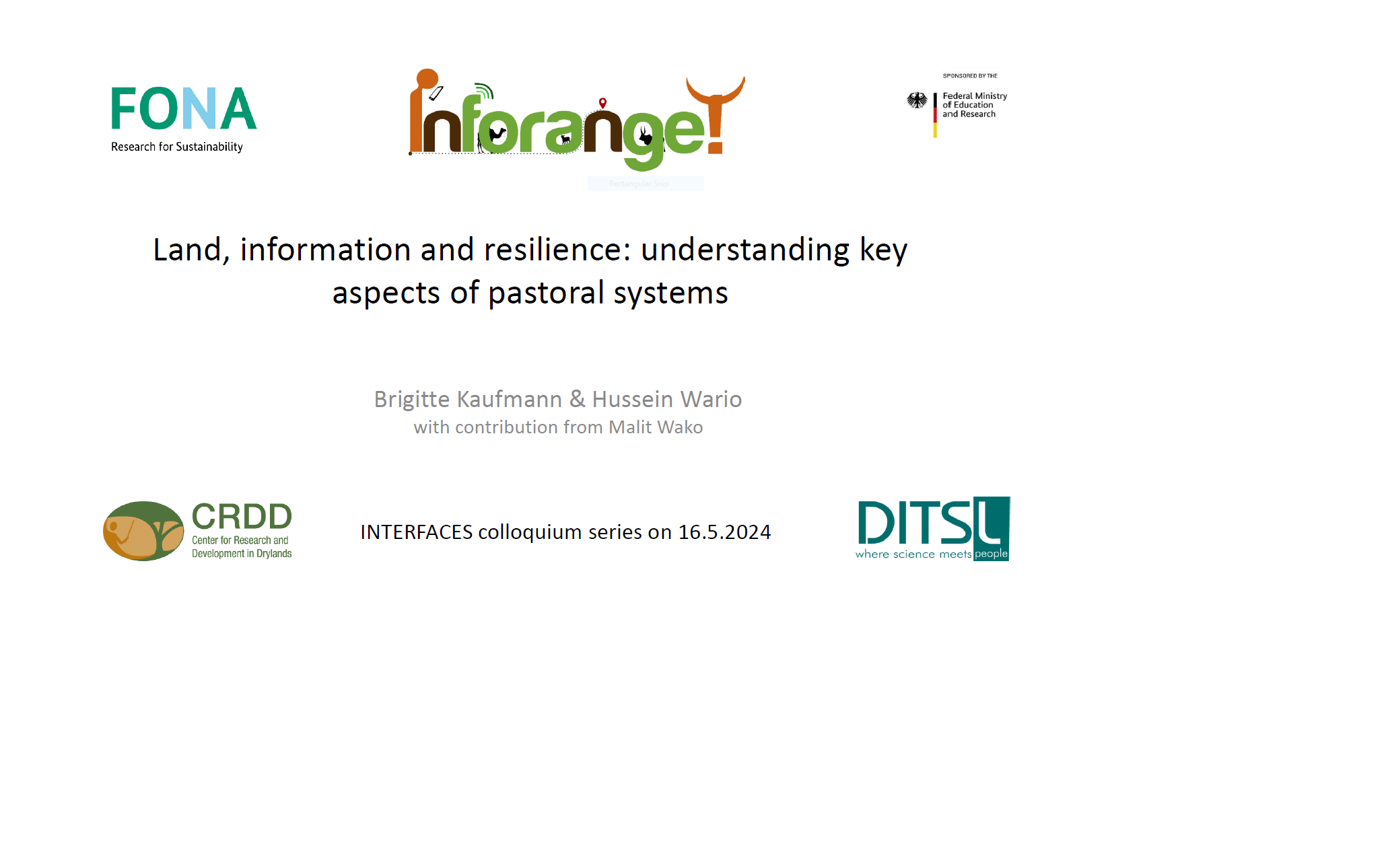The eighth INTERFACES colloquium took place on 16 May 2024. The presentation by Prof. Brigitte Kaufmann (DITSL, Germany) and Dr. Hussein Wario (CRDD, Kenya) was entitled: “Land, Information and Resilience: understanding key aspects of pastoral systems” and covered research aspects from the InfoRange project.
Starting with addressing the question of how rangeland is valued and the consequences this has for local versus global use interests, Brigitte Kaufmann explained that rangelands were often regarded as wastelands by outsiders, but that they have always been of high value to pastoralists. Their specific knowledge and information systems allow them to exploit the highly heterogeneous and variable resources for different animal species or situations as required, exemplified by travelling routes which the InfoRange project documented through smartphone tracking. However, large national or international companies are increasingly interested in exploiting such rangelands, which they see as waste, empty lands, ready to use, for example for huge wind or solar energy parks.
In the second part of the presentation Hussein Wario then explained, based on examples from Kenia, the knowledge- and information-intensive mode of resource use by pastoralists. As InfoRange is developing a specific smartphone app which is aimed at documenting and informing about available rangeland resources, he further discussed whether and under what conditions these new global interests for the rangelands can be undertaken in a just manner to ensure that resilience of the local systems is enhanced and not compromised.
The discussion was engaged and lively as usual and covered, amongst others, questions about benefits and risks of the new smartphone app, about the use of common resources and how much could be learned about their shared use by other cultures, whether the app could also be used to indicate need for (government) interventions, for example the development of dams.
